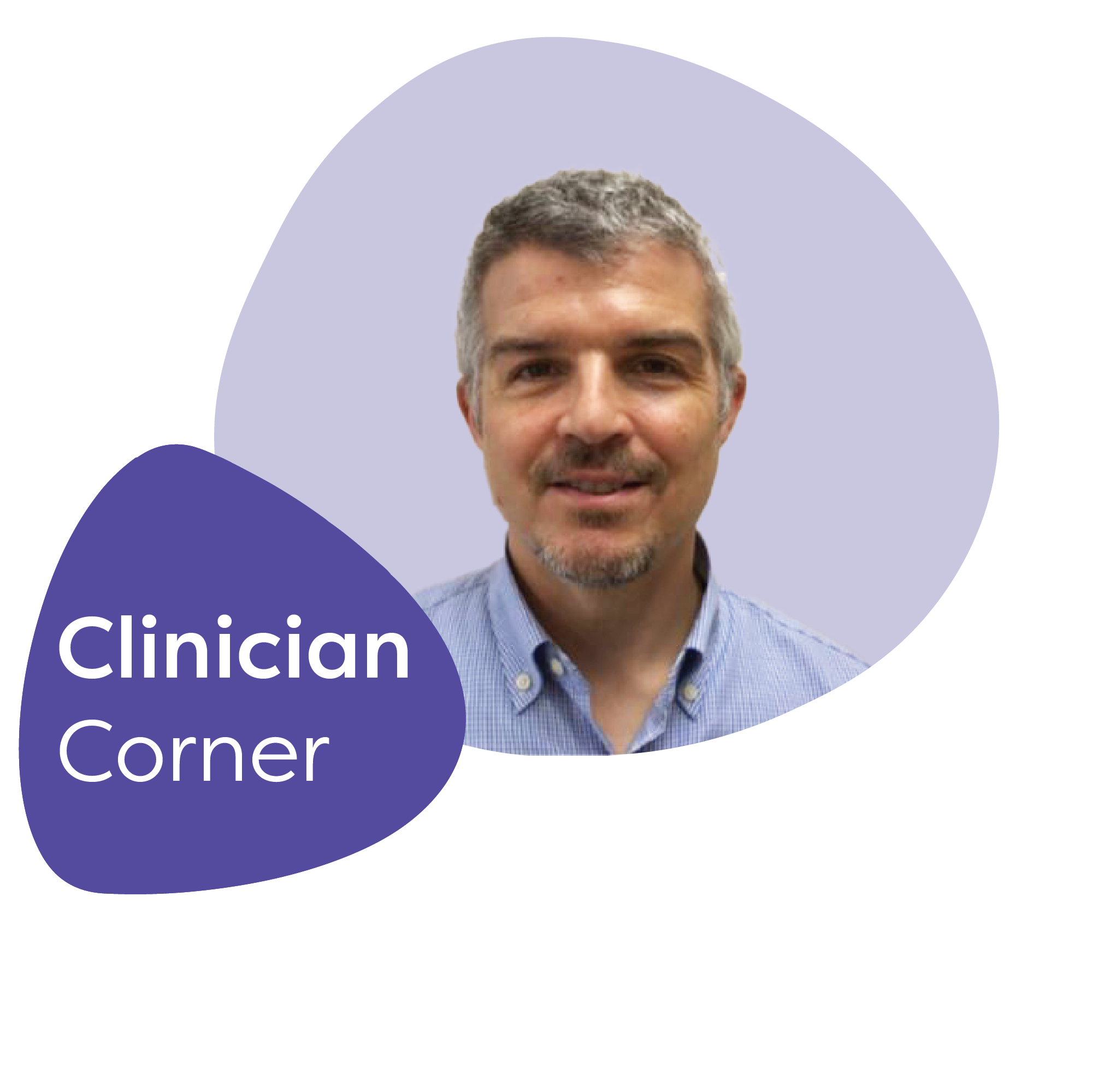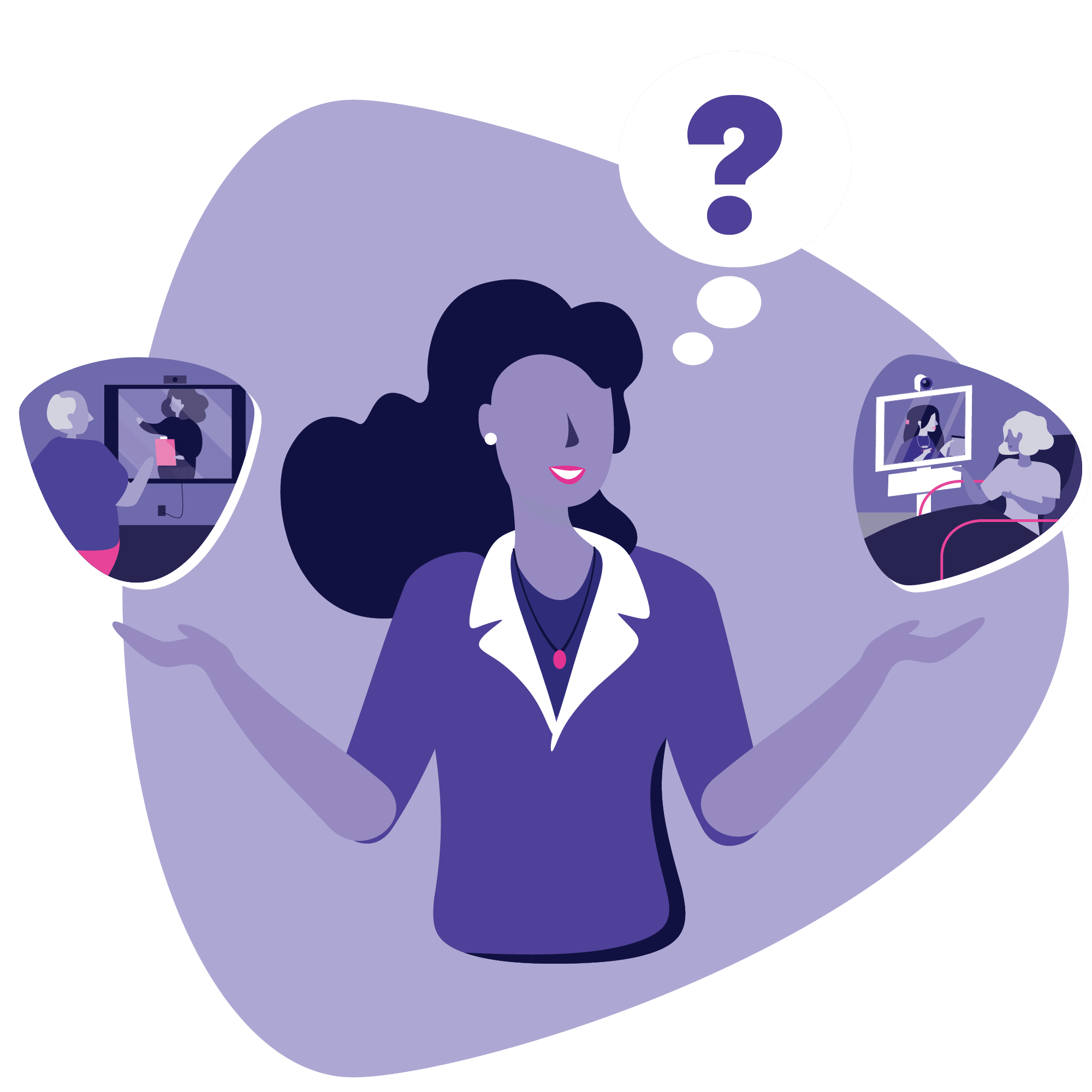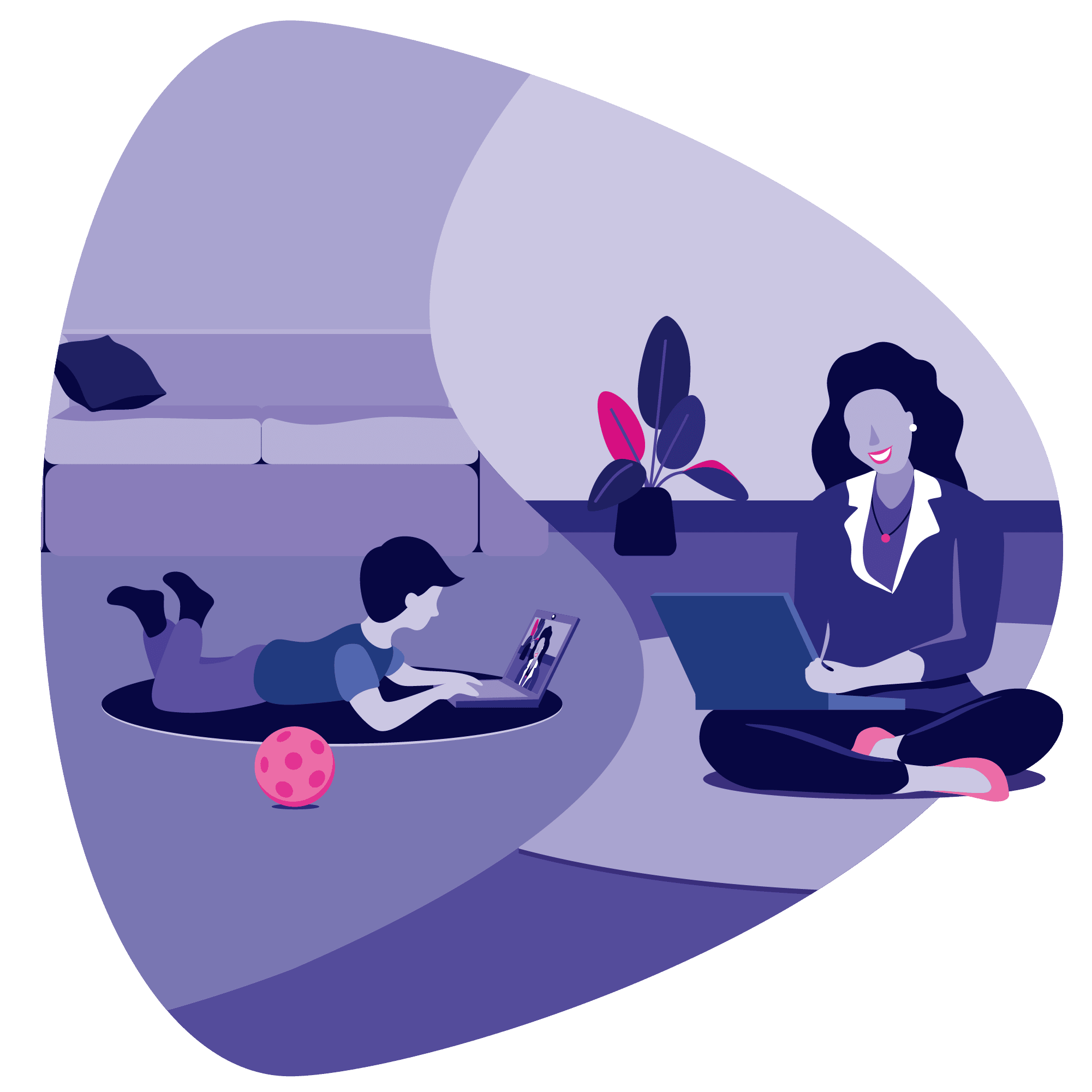Iris clinicians are at the heart of what makes our organization such a special place to work. That’s why we’re turning the spotlight on the amazing work they’re doing every day. This month, we’re sitting down to talk with Dr. Mark Miceli.
Q: How did you find Iris and decide you wanted to be an Iris provider?
A: Before I joined Iris, I was working at an inpatient hospital in New Jersey as the medical director of my unit and the interim chairperson of the division of psychiatry. I was doing a lot, and it was really hectic. I wasn’t happy at the job.
I was working with another clinician who told me I should look into Iris, and I ended up applying. I went through the interview process, and it went from there.
Q: What does a typical day as an Iris Telehealth provider look like for you?
A: I work for a health system in Minnesota. I’m credentialed at 10 or 12 different hospitals and partial hospital units across that health system and I fill in when they need people. That includes when people are on maternity leave, when organizations are in-between hiring a new psychiatrist, or if someone is taking an extended leave.
Q: What do you love about being a telepsychiatry provider?
A: In my previous job, I was in a little office with no windows and a cold air vent blowing on me – it wasn’t comfortable by any stretch of the imagination. With Iris, I love that I’m in my own environment. I love that I can work with people in different geographical areas. My patients are all in Minnesota, so I get to know the culture that exists there. There’s also a separation where I’m not going to run into patients at the grocery store.
Another thing I love is the flexibility to work from different places. At the height of the COVID-19 pandemic, my family and I were able to rent a beach house in Cape Cod. The beach house had Wi-Fi so that I could work there and my son could enjoy the outdoors and fresh air.
With inpatient, we usually see people early in the day, and then we do documentation. Once I see my patients, I can move my computer anywhere where there’s Wi-Fi. I can take a break to get my son and eat good, hot food at home instead of spending money at a restaurant. I also love that I don’t have to commute 45-minutes or an hour every day. There are a million great things.
Q: How do you foster connection with patients virtually?
A: In my home office, I have things behind me like a guitar or a yoga mat – having these things related to my interests in the background gives my patients and I something to talk about. Another thing I always do is look into the camera, smile, and try to make eye contact. I try to send them really good, positive energy over the internet.
One helpful thing is having the on-site staff really trust and work with me. They’re a major factor for inpatient care, and their extra help makes a significant difference. They help reassure the patient and let them know what I’m doing and that I care about them. One of the most satisfying parts of the job is the people I work with. The teamwork is fantastic.
I work at four or five places steadily where I rotate through, and I look forward to seeing the people, and they look forward to seeing me. It’s a nice thing, and it doesn’t get old after six years of being in the same place. It stays refreshing and diminishes the grind. When you work in an inpatient unit, you’re going to the same place every day and seeing the same people. The specific job I have with Iris is amazing.
Q: As a healthcare professional, how do you manage work-life balance?
A: I don’t have a commute, so I can drop off my son in the morning, go for a walk in Central Park, do my yoga exercises, then work. I can take time to relax, have lunch, then go back to work. I can still get my son in the afternoon. I don’t know if there’s any secret to it. We can travel and have a life outside of being stuck in an apartment.
I have much more time in my life now that I’m a telepsychiatrist. It’s liberating. You’re not trapped in a certain place for that many hours.
Q: What are your biggest learnings from your time at Iris?
A: I learned a lot of new technology that I wasn’t really aware of – like Epic. Getting to know Epic was a great skill to learn, and I love that platform. It’s one thing that I didn’t use before. It’s amazing, and I’m so happy that all my jobs are using it now. It’s powerful, and you can easily learn about the patients.
Q: What is the most rewarding part of your job?
A: Working for Iris has been the most rewarding out of all the jobs I’ve worked since my residency. The people I work with are super positive. I always feel supported and proud to work for Iris.
I also love working in Minnesota. I love the culture and the people. I like making connections with the support staff and the patients there. It’s been gratifying. I live in New York City, and I work on the East Coast, so it’s just a different approach to life. I have more connection with my son, and I’m able to be a big part of his life even though I’m working full time. If I were commuting an hour back and forth every day, that would be two fewer hours to be a part of my son’s life.
Q: Why do you think telepsychiatry is important to the future of mental healthcare?
A: It brings psychiatry to places where it’s not easily accessible for people. Especially where I’m working in some of the smaller towns in Minnesota, it’s hard for people to get quality psychiatry. I know that primary care is doing a lot of medication management. However, that’s not their specialty, it’s one more thing to learn, and they may not be comfortable with it.
I think we can bring more quality, specialty care to people who don’t have access. Even though COVID-19 made it unsafe for people to go out, they can still get their medications refilled, have a connection, have someone check in on them, support them, and help treat their conditions.
Even in Minnesota, they were canceling outpatient programs in the bad snow and cold, but we could still see people in their homes. This type of access varies by state, and some states don’t allow the patient to be at their home. However, Minnesota is really progressive. In the partial hospitals where I’m working, people talk from their own homes instead of having to come into a clinic.
Q: What do you love about working with Iris?
A: Iris makes you feel like you’re part of the team, and they really validate you. I’ve worked so many places where you’re just there, and they expect you to be there and do your job, but you don’t get any appreciation.
After four years, Iris gave me a plaque, and I was employee of the month. Ted Bryant, the Senior Manager of Clinical Operations, is amazing. He’s always positive and is always saying, “You’re a great doctor!” It makes a difference to feel like you’re not just a cog in the machine, but you’re a person. I don’t know what it would be like to work for another telehealth company, but I can’t imagine anything better than working for Iris.
At Iris, we believe our providers should be respected, valued, and applauded for the work they do, and we couldn’t be more proud to say, “thank you” to our very own Dr. Mark Miceli. If you’d like to learn more about working for Iris Telehealth, contact us today.



